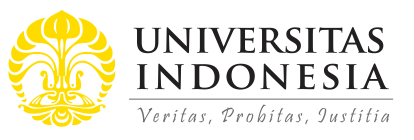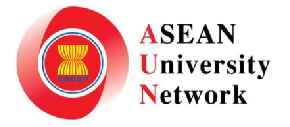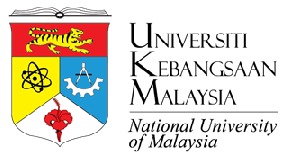
Abstract
This study explored the potential of social media for effective mass mobilization and community engagement to attain national development in Nigeria. Premised on the fact that social media have become popular platforms attracting millions of subscribers, the study examined how the opportunities they offer could be harnessed and purposefully deployed to galvanize the citizens to pursue national development causes. This was done against the backdrop of the technological determinism theory that provides the framework for investigating the indispensable role which technology plays in the advancement of a nation’s socio-economic development. The secondary research approach was adopted to carry out the study and studied the 2020 #EndSARS protest (SARS refers to Special Anti-Robbery Squad), a youth uprising that aimed to put an end to all forms of police brutality and systemic injustices in the country. This study examined the nature of digital activism that social media facilitated during the protest and how that translated into real-life activism, thereby galvanizing the youth to actively execute the protest. By considering the challenges of the platforms in this regard such as the possibility of being hijacked and negatively deployed in a counterproductive manner, the study concludes that proper mainstreaming of social media into the community engagement and national development struggle would help engage meaningfully with the citizens and mobilize them to attain socio-economic development in the country. Conclusively, the #EndSARS experience demonstrates that social media portends considerable opportunities to engage citizens positively for national development in Nigeria.
References
Abdullahi, J., & Emmanuel, N. O. (2020). Participatory development communication among digitally marginalized rural dwellers in Zuru community. In D. Gambo & H. Bata (Eds.), Digital media, communication & civic engagement in Nigeria (pp. 173–186). African Council for Communication Education.
Adediran, I. (2021, June 6). #EndSARS: 99 bodies deposited at Lagos morgue, three from Lekki tollgate–Pathologist. Premium Times. https://www.premiumtimesng.com/news/headlines/465888-endsars-99-bodies-deposited-at-lagos-morgue-three-from-lekki-tollgate-pathologist.html
Adetayo, O. (2020, October 13). #EndSARS: Presidential panel approves protesters’ demands. Punch. https://punchng.com/breaking-endsars-presidential-panel-approves-protesters-demands/
Adeyanju, A. M. (2013). Mass media and public opinion: Formation, process and uses. In U. Pate, C. Nwabueze & N. Idiong (Eds.), Politics, culture and the media in Nigeria (pp. 183–204). Stirling Horden Publishers.
Adler, P. S. (2006). Technological determinism. In S. Clegg & J. I. Bailey (Eds.), International encyclopedia of organization studies (pp. 925–930). SAGE Publications.
Akindele, S. T. (2004). Political mobilization for rural development and a stable Nigerian democratic republic: An in-depth examination of the role of local governments. Journal of Human Ecology, 16(2), 99–112. https://doi.org/10.1080/09709274.2004.11905722
Alade, A., Aliyu, A., Alabi, C. T., Agha E., Bamgboye, A., Ramoni, R., Lagos, Oke, J. & Oyegbade, H. (2020, October 22). #EndSARS: Anarchy in Lagos. Daily Trust. https://dailytrust.com/endsars-anarchy-in-lagos
Ashong, C. A. (2021). Mainstreaming development communication for national development. 83rd Inaugural Lecture, University of Uyo. Uyo, Nigeria.
Baran, S., & Davis, K. (2010). Mass communication theory: Foundations, ferment, and future. Cengage Learning.
BBC (2020, October 24). How the End SARS protests have changed Nigeria forever. BBC News. https://www.bbc.com/news/world-africa-54662986
Chon, M. & Park, H. (2020). Social media activism in the digital age: Testing an integrative model of activism on contentious issues. Journalism & Mass Communication Quarterly, 97(1) 72–97. https://doi.org/10.1177/1077699019835
Dauda, S., Abubakar, A.A. & Lawan, A.K. (2017). Discursive devices, social media and conflict discourse in Nigeria. In U. Pate & L. Oso (Eds.), Multiculturalism, diversity and reporting conflict in Nigeria (pp. 250–271). Evans Brothers Publishers Limited.
Hari, S. I. (2014). The evolution of social protest in Nigeria: The role of social media in the “#OccupyNigeria” protest. International Journal of Humanities and Social Science Invention, 3(9), 33–39.
Jibril, A. (2017). Online newspaper coverage of the “Bring Back Our Girls” campaign in Nigeria. In U. Pate & L. Oso (Eds.), Multiculturalism, diversity and reporting conflict in Nigeria. (pp. 272–299). Evans Brothers Publishers Limited.
Jibril, A. & Targema, T. S. (2017). Online readers’ comments and national unity. In V. Ayedun-Aluma (Ed.), Digital Media, New order? Emergent practices in the Nigerian Media Environment, ACSPN Book Series 2 (pp. 170–193). Canada University Press.
Joseph, O. (2014). National development strategies: Challenges and options. International Journal of Humanities and Social Science Invention, 3(4), 51–58.
Kediehor, C. & Uchenunu, A. (2020). Digital media and the participation of Udi community in politics. The Nigerian Journal of Communication, 17(1), 101–118.
Lawal, T. & Oluwatoyin, A. (2011). National development in Nigeria: Issues, challenges and prospects. Journal of Public Administration and Policy Research, 3(9), 237–241.
Maikomo, J. M., Targema, T. S. & Obun-Andy, M. K. (2021). COVID-19 and the new normal in developing societies: An appraisal of Nigerians’ adaptation to digital life in public and private spheres. Journal of Developing Societies, 37(3), 246–274. https://doi.org/10.1177/0169796X21996830
Moses, J. M., Targema, T. S. & Ishaku, J. (2022). Tale of an ill-fated scapegoat: National security and the struggle for state-regulation of social media in Nigeria. Journal of Digital Media & Policy. https://doi.org/10.1386/jdmp_00100_1
Nsude, I., Ogbodo, J. N. & Nwamini, S. (2021). Creating and fighting fake news: Artificial Intelligence as double-edged sword. In A. Fayoyin & I. Ademosu (Eds.), Knowledge societies: Artificial intelligence and the media (pp. 58–76). UNESCO.
Nwabueze, C. (2014). Introduction to mass communication: media ecology in the global village. Top Shelve Publishers.
Nwabuikwu, O. (2020, October 21). On #EndSARS, the older generation should put up or shut up. The Cable. https://www.thecable.ng/on-endsars-the-older-generation-should-put-up-or-shut-up#google_vignette.
Nwala, B. A., Daniel, P. U. & Odum, U. (2020). Utilisation of social media in the realisation of community development in Port Harcourt City, Rivers State. In D. Gambo & H. Bata (Eds.) Digital Media, Communication & Civic Engagement in Nigeria (pp. 85–98). African Council for Communication Education.
Obono, K. (2016). The architecture and use of social media in the 2015 Nigerian general elections. The Nigerian Journal of Communication, 13(1), 47–78.
Odoyi, C. D., Omego, C.U. & Olatunji, R. W. (2020). Social media usage among youths and grassroots mobilisation in Rivers State, Nigeria. In L. Oso, R. W. Olatunji, D. Odunlami & K. Adesina (Eds.). Media Freedom, National Interest and Governance. ACSPN Book Series 5 (pp. 188–210). Canada University Press.
Okafor, C. O. & Oko, T. (2020). Influence of digital media on urban and rural citizens’ participation in the political process. In D. Gambo & H. Bata (Eds.) Digital Media, Communication & Civic Engagement in Nigeria (pp. 57–70). African Council for Communication Education.
Oke, B. R. (2019). Using new media for development in rural Nigeria. In A. J. Udodo, A.S. Bashir, & E. H. Bata (Eds.). Development communication in contemporary Nigeria: A festschrift of Professor Ashong Clifford Ashong, (pp. 207–228). University of Uyo.
Omede, J. & Ngwube, A. (2018). Mainstreaming corruption poverty and development in Nigeria. Brazilian Journal of African Studies, 2(4), 184–197.
Omilana, T. (2020, October 19). IGP announces new squad “SWAT” to replace SARS. The Guardian. https://guardian.ng/news/igp-announces-new-squad-swat-to-replace-sars/
Paragas, F. C., & Lin, T. C. (2016). Organizing and reframing technological determinism. New Media & Society, 18(8), 1528–1546. https://doi.org/10.1177/1461444814562156
Sambe, J. A. (2008). Introduction to mass communication practice in Nigeria. Spectrum Books.
Sanda, H. U. & Targema, T. S. (2020). Conduits or constraints? Stakeholders’ perspectives on social media and the management of ethno-religious conflicts in Taraba State. TSU Journal of Communication and Media Studies, 3(2), 24–52.
Shaw, A. (2016). Role of social media in social mobilization (with special reference to Shahbag and Hokkolorob movements). Global Media Journal-Indian Edition, 7(1), 1–8.
Sharma, G. (2018). Technological determinism: Perspectives on technology and social change. Online International Interdisciplinary Research Journal, 8(3), 148–159.
Shuaib, Y. A. (2020, October 15). EndSARS: Protesters, crowdfunding and national security, by Yushau A. Shuaib. Premium Times Opinion. https://opinion.premiumtimesng.com/2020/10/15/endsars-protesters-crowdfunding-and-national-security-by-yushau-a-shuaib/
Targema, T. S. (2020). Using social media for managing ethno-religious conflicts in
Taraba state: Stakeholders’ perspectives [Unpublished master’s thesis]. Bayero
University Kano.
Ude-Akpeh, C. E., Nnaemeka, F. & Ginikachukwu, A.C. (2020). Social media networks
and political mobilisation of youths in select universities in Anambra State. In
D. Gambo & H. Bata (Eds.) Digital media, communication & civic engagement
in Nigeria (pp. 219–230). African Council for Communication Education.
Uji, B. M. (2015). Social media and the mobilization of youths for socio-political
participation. New Media and Mass Communication, 42, 27–34.
Vanguard (2020, October 12). Five demands from #EndSARS protesters. Vanguard.
https://www.vanguardngr.com/2020/10/five-demands-from-endsars-protesters/
Wogu, J. O. & Egwu, P. E. (2020). Use of social media for political participation during the 2019 general election among youths in Enugu State, Nigeria. In D. Gambo & H. Bata (Eds.) Digital Media, Communication & Civic Engagement in Nigeria (pp. 1–12). African Council for Communication Education.
Wolfsfeld, G. Segev, E. & Sheafer, T. (2013). Social media and the Arab Spring: Politics comes first. The International Journal of Press/Politics, 18(2), 115–137.
Recommended Citation
Akpan, Eno-Obong Blaise and Targema, Tordue Simon
(2022).
Social Media, Mass Mobilization and National Development in Nigeria: Lessons from the #EndSARS Protest.
ASEAN Journal of Community Engagement, 6(2), 228-243.
Available at: https://doi.org/10.7454/ajce.v6i2.1166
Included in
Communication Technology and New Media Commons, Development Studies Commons, Social Media Commons







